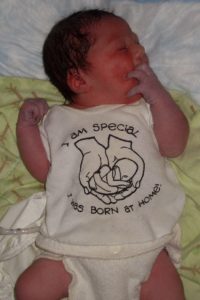Your Baby
 Parenting begins at conception. Thankfully, there are leaders out there supporting families in connecting with their baby, before birth.
Parenting begins at conception. Thankfully, there are leaders out there supporting families in connecting with their baby, before birth.
Dr. Thomas Verny is one of those leaders. In 1983, Verny founded the Pre- and Perinatal Psychology Association of North America (PPPANA, renamed APPPAH in 1995), and served as its president for eight years.
Verny’s latest book, TOMORROW’S BABY: The Art and Science of Parenting from Conception through Infancy, written with Pamela Weintraub, was published in hardcover by Simon and Schuster, New York, in 2002 and in paperback under a new title, PRE-PARENTING: NURTURING YOUR CHILD FROM CONCEPTION in 2003. The book explores the implications of recent discoveries in the brain sciences and Prenatal Psychology for early human development, personality and parenting.
Dr. Frederick Wirth was the President of The Institute for Perinatal Education. The primary mission of The Institute for Perinatal Education was to educate consumers of perinatal healthcare, so they improve the outcome of their pregnancies. Dr. Wirth developed the Wirth Prenatal Parenting Technique. See his book, Prenatal Parenting.
You need not live the Wirth Prenatal Parenting Technique. Take from it what you will. The important thing is to acknowledge your impact on your growing baby. Life is stressful, and you need to let your baby know that you and the baby are ok and will be ok. You also need to limit the stress that you can control in your life.
Do you know that natural oxytocin (“the love drug”) rush you get each time your nurse your baby or enjoy intercourse with your mate? You can give your baby that same rush (and yourself) with what Dr. Wirth calls, “a fetal love break.” What a yummy sensation to share with your growing baby and to help your baby release the daily stresses he feels.
La Maravilla del Vinculo Afectivo
An Imprint for Life, by Leah LaGoy, also talks to how your baby, in utero, is having his/her experiences from conception on.
Prenatal/Perinatal Stress and Its Impact on Psychosocial Child Development, by Janet DiPietro, PhD


